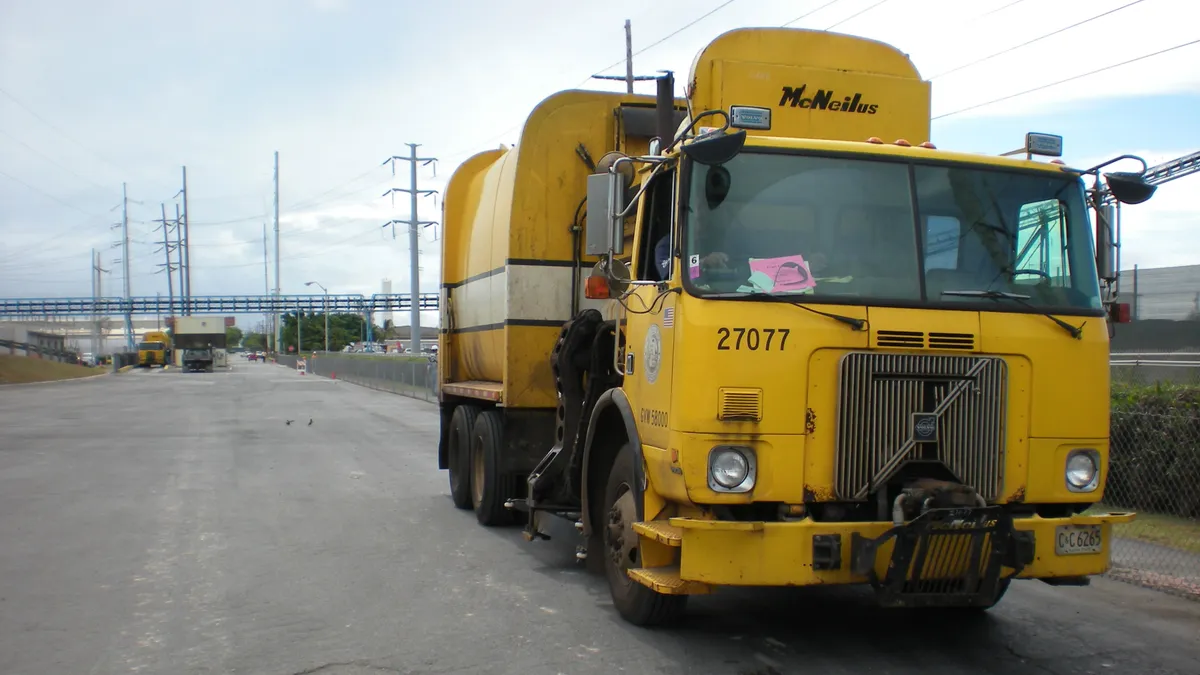Dive Brief:
- Honolulu City Auditor Edwin S.W. Young has released a new report highlighting numerous inefficiencies and abuses among municipal collection workers at the city and county's Department of Environmental Services (ENV), as reported by Honolulu Civil Beat. The audit was initiated following hundreds of calls from residents about missed or delayed bulk waste pick-ups.
- The audit found that between July 2015 and July 2016, about 80% of ENV's 122 bulk waste collection workers took a combined total of 2,227 sick days — averaging about 22 days per person. During that same period, 153 employees were paid $1.7 million in overtime for bulk collection. Between July 2015 and April 2017, 21 employees also took more than 3,900 hours of unpaid leave — averaging 23 days each.
- The bulk collection issues were mainly attributed to the prevalence of sick days among employees, along with a lack of resources at ENV to enforce bulk item regulations. The audit recommended reassessing the city's memorandum of agreement with the United Public Workers union, updating collection routes, reviewing staffing levels, and taking more disciplinary measures against workers that may be abusing the sick time policy.
Dive Insight:
Finding a way to adjust bulk service through staffing or routing is expected to save Honolulu money. On the labor side, employees are currently considered to have finished an eight-hour work day once two loads are collected — regardless of whether they're both full — and each additional load collected entitles workers to four hours of overtime pay. As for sick leave, ENV has called out nine bulk waste employees for abusing that policy over the past two years, but only one has been disciplined.
Other factors with bulk waste collections are education and frequency. Since ENV's enforcement division is currently understaffed, and resident awareness is mixed, it's common for non-bulk items to be put out for bulk collection. One proposal from the city is to change bulk collection to an on-call fee-based system to make this system more efficient.
While unlimited regular bulk collection does exist in some communities, it's not always a common feature depending on whether the system is municipal or privatized. In some cases residents may only have one or two opportunities per year to get their bulk items collected on specific days, or will have to call and schedule appointments. Updating that system, as recommended by the audit, may help Honolulu deliver better and more cost-effective service to residents. A dialogue with the sanitation workers' union may also yield results.















